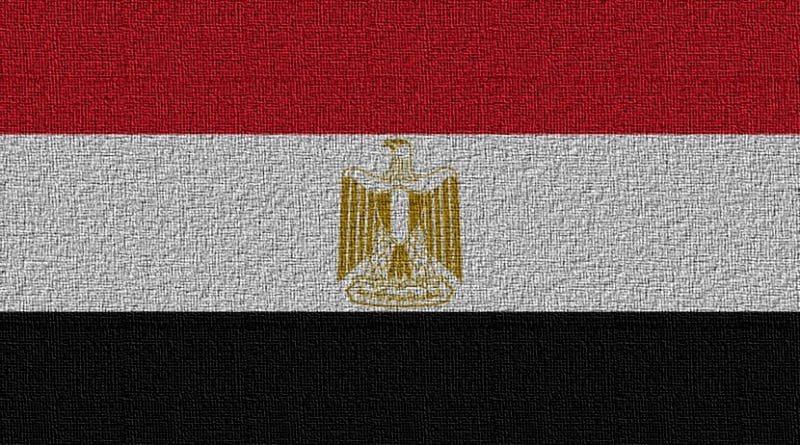Egyptian Revolution Should Not Be Subsidized – OpEd
By Ramzy Baroud
The initial clarity of Egypt’s revolutionary discourse has been replaced by perplexing discussions involving a range of issues from ‘Islamists vs liberals’ to football violence. The latest such issue involves the rift between the US and the Egyptian government over the latter’s crackdowns on organizations with questionable sources of funds.
Following the ousting of Egypt’s former president Hosni Mubarak last February, a brief period of euphoria ensued. Then shortly after, Egypt once more fell into disarray, if not complete chaos.
This time round, pinpointing the culprits was no simple task. Some blamed the Supreme Council of the Armed Forces (Scaf) — accused of championing the same corrupt and violent legacy of Mubarak’s. Others spoke of counter-revolutionaries and remnants of the Mubarak era, or a conspiracy involving Islamic political forces — which secured clear majority in the country’s parliamentary elections — Scaf, and outside parties.
Scaf on the other hand, eluded to outside forces aiming to weaken Egypt politically. The Islamists blamed the liberals for attempting to circumvent the clear election results, perpetuating the state of anarchy to force Scaf to reinstate emergency laws.
The episode of finger-pointing hardly ends here. Ultimately the new and confounding narratives replaced the clarity of the revolution’s early demands, which were concerned with political freedom, equal distribution of wealth, social and job security, the end of corruption, and so on.
Whether the current upheaval in Egypt is an unfortunate but expected bedlam that will eventually usher in a new democratic era, or is in fact an orchestrated campaign to humiliate this Arab country is too difficult to ascertain.
That said, there are indeed many signs that point to international — western and Arab — clamor to contain the possibility of a truly democratic Egypt. While containment policies are not easily applicable to Egypt, the second best alternative is renewing the dependency relationship that existed before the ousting of Mubarak.
The US has dangled a carrot worth $1.5 billion (Dh5.5 billion) annually before the Egyptian government for the last three decades, benefiting mostly the country’s military apparatus.
Some Arab countries also offered politically-motivated financial support that helped keep the Egyptian budget (barely) afloat. International institutions and western governments offered loans and other perks to secure Mubarak’s position as a reliable ally for the US, Israel and others.
Although the revolution didn’t instantly break away from that decades-long dependency, its political outcomes threatened to destabilize it. Early signs included the transitional government’s flat rejection of loans by the International Monetary Fund (IMF). Accepting such funding would once more hold Egypt to US-western diktats ranging between ‘structural adjustments’ and specifically tailored ‘political reforms’.
The crises that have engulfed Egypt since last year invite legitimate questions about the seemingly hidden parties that attempt to manage the Egyptian revolution. Why the keen interest in maintaining an environment of crisis? And how does this relate to the recent government crackdown on Egypt-based US NGOs, known for their affiliation with the two main political parties in the US?
The crackdown on US-affiliated NGOs has been lumped with the larger issue of Egypt’s unwarranted attempts to curtail civil society organizations altogether. Currently there are an estimated 40,000 such organizations (10,000 NGOs reportedly sprung in the last year alone, according to Inter Press Service, February 22). But these are fundamentally different points of contention.
“The ideological and governmental character of the US organizations [subject to the Egyptian government crackdown] is epitomized by the nature of their leadership,” wrote independent UN human rights envoy Dr Richard Falk.
“Madeleine Albright, Secretary of State during the Clinton presidency, is chair of the [National Democratic Institute] NDI board, while former Republican presidential candidate and prominent current senator, John McCain, holds the same position at the [International Republican Institute] IRI” (Al Jazeera, Feb 21).
There is little doubt that the US is actively pursuing its own agenda in Egypt. Unfortunately, between the ‘Washington consensus’ and the unclear agendas of the NGOs, Egypt is already showing signs of weakening under pressure.
These two headlines, seven months apart, are enough indication of the faltering political will of the ‘new Egypt’: Egypt Drops Plans for IMF Loan amid Popular Distrust (BBC, June 25, 2011) and Pressed by Unrest and Money Woes, Egypt Accepts IMF Loan (New York Times, Feb 19, 2012).
One cannot expect Egypt’s lenders to wait for long before forcing their demands, exacting political concessions in exchange for money. We know this from previous histories involving Washington-based institutions, and also because Washington is already threatening to cut its aid to Egypt if the latter doesn’t modify its behavior regarding US NGOs.
James Phillips and Helle Dale of the conservative Heritage Foundation have started stating the terms. “The Obama administration should take off the kid gloves and firmly warn Egypt’s transitional leaders that they will pay a heavy price for their crackdown on NGOs that support freedom, human rights, and the rule of law in Egypt,” they wrote on February 9.
Predictably, they urged further support for Israel and suggested that “the prospective loss of $1.5 billion in annual assistance and American opposition to new loans from international lending institutions may exert a powerful influence in persuading Egypt’s new leaders to discontinue their politically motivated prosecutions.”
If the new political phase in Egypt doesn’t lead to an assertive new set of policies and finalize a workable democratic (by Egyptian standards) transition, Egypt could continue to teeter between internal mayhem and external dependency. This fate would unfortunately be no less terrible than the years of Mubarak and his family.

